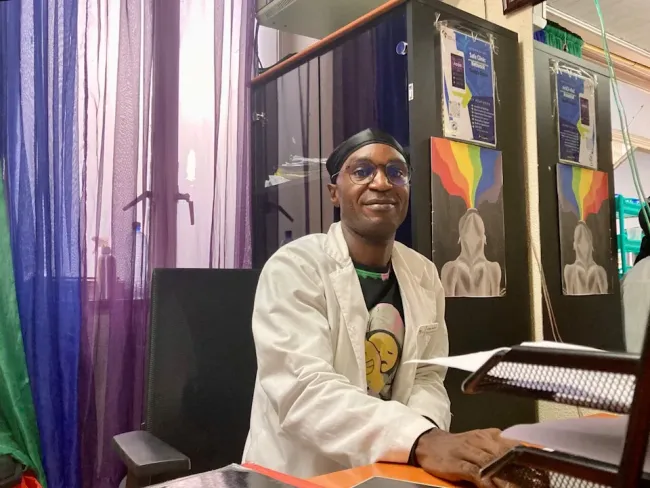The Human Cost of Aid Cuts: Ibrahim Lwingi’s Fight to Stay HIV-Free in Kenya
When 26-year-old Ibrahim Lwingi walks into his local health clinic in Kenya, he does so with hope—and a little relief. For the past two years, Ibrahim has been accessing pre-exposure prophylaxis (PrEP) for free through a program run by the University of Manitoba. This daily pill has shielded him from HIV, offering a future his parents’ generation could barely imagine.
But now, Ibrahim’s lifeline is under threat. Program coordinators warn that funding is about to run dry due to foreign aid cuts by the Trump administration, putting thousands of Kenyans like Ibrahim at risk of losing access to lifesaving HIV prevention medication.
What is PrEP and Why Does It Matter?
PrEP (pre-exposure prophylaxis) is one of the most effective tools in the fight against HIV. Taken daily, it can reduce the risk of contracting HIV through sex by about 99%, according to HIV.gov. In countries like Kenya—where HIV rates are still among the highest in the world—PrEP has been a game-changer, protecting vulnerable populations such as sex workers, men who have sex with men, and young women.
Kenya has become a global leader in PrEP access, with over 544,000 people initiated on PrEP programs in recent years. For many, like Ibrahim, PrEP is more than a pill—it is freedom from fear, stigma, and uncertainty.
The Role of the University of Manitoba in HIV Prevention
The University of Manitoba has worked in Kenya for more than 45 years, helping to build some of the most impactful HIV prevention programs in Africa. Through partnerships with Kenyan health authorities, the program provides education, testing, treatment, and preventive medication to thousands.
Much of the program’s support has come from PEPFAR (the U.S. President’s Emergency Plan for AIDS Relief) and the Global Fund—two of the largest funders of global HIV prevention. This foreign aid has paid for medicine, testing kits, and trained healthcare workers who deliver care on the ground.
But with funding paused and potentially slashed, program leaders warn that clinics could face collapse. “Health is a human right,” one University of Manitoba doctor emphasized. “Without consistent funding, the progress we’ve made risks being undone.”
The Trump Administration’s Foreign Aid Cuts
The Trump administration has repeatedly sought to cut foreign aid spending, including funds for HIV prevention programs abroad. Though Congress has sometimes blocked the most drastic reductions, uncertainty around funding has created chaos in clinics.
Analysts warn that if programs like Ibrahim’s lose PEPFAR funding, the consequences will be dire. Modeling studies suggest that over 6,700 new HIV infections could occur in a single year in Kenya if PrEP distribution is disrupted. For a nation that has worked tirelessly to curb its HIV epidemic, this would be a devastating setback.
Ibrahim’s Story: Life on the Line
For Ibrahim, the issue is not abstract—it is personal. Before starting PrEP, he lived with constant anxiety. “I knew people around me getting sick,” he said. “I didn’t want that future.”
Thanks to the University of Manitoba program, he has stayed HIV-free. The free medication gave him not only protection but dignity—the ability to choose a healthier life without worrying about affordability.
Now, the possibility of losing access has shaken him. “If the program closes, I don’t know where I will go,” he explained. For young people in his community, PrEP is the only safety net. Without it, they risk slipping back into the cycle of infection that has haunted previous generations.
What’s at Stake for Kenya—and the World
Kenya has been a success story in global HIV prevention, largely because of consistent international support. Losing free PrEP access would not only affect individuals like Ibrahim—it would reverse decades of progress, increase infection rates, and ultimately cost far more in treatment expenses than prevention programs ever did.
The situation is also a warning for the world: when foreign aid cuts slash essential health programs, the human cost is immediate and devastating. What happens in Kenya matters globally. Infectious diseases know no borders, and setbacks in one country ripple outward.
Why Continued Funding Matters
Programs like the University of Manitoba’s clinic in Kenya prove that HIV prevention works when it’s accessible and affordable. Cutting funding now doesn’t just threaten Ibrahim’s health—it threatens to unravel one of the most effective global health success stories of the past two decades.
Ibrahim’s message is simple: “We just want a chance to stay healthy.”
Final Thoughts
The story of Ibrahim Lwingi is not just one man’s fight against HIV—it is a symbol of what’s at stake when global health programs lose funding. PrEP has given hope to thousands in Kenya, but without sustained investment, that hope could vanish.
If the world is serious about ending HIV, it cannot afford to let politics cut off the very programs that save lives.
